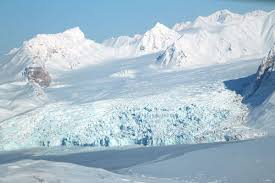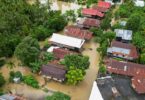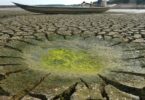KATHMANDU/LAHORE (Reuters): Nepal’s snow-capped mountains have lost close to one-third of their ice in over 30 years due to global warming, UN Secretary-General Antonio Guterres said on Monday after a visit to the area near Mount Everest, the world’s highest peak – a phenomenon being witnessed across the region including Pakistan.
His statement came just days after a UN report warned that the glaciers – which ensure sustained water flow in its rivers – were at risk, also threatening the millions people depending on them.
Read more: Global warming and Pakistan: UN report warns glaciers and dependent people are at risk
“The 90,000+ glaciers of the Himalayas, Karakoram and Hindu Kush mountains are at risk, and so are the nearly 870 million people that rely on them,” the report said.
It is a clear reminder that climate change is affecting Pakistan and other countries in the region at an alarming pace, which requires coordinated efforts at global level to first arrest and then reverse the trend.
We, in Pakistan, are already witnessing less snowfall and shorter winters since 1980s, meaning that glaciers are melting at a rate faster than the snow dumped over the mountains during winters.
Climate scientists say the earth’s temperature has increased by an average of 0.74 degrees Celsius over the past 100 years, but warming across South Asia’s Himalayas has been greater than the global averages.
Glaciers in Nepal, wedged between two major carbon polluters – India and China, melted 65 per cent faster in the last decade than in the previous one, the UN chief said in a video message after visiting the Solukhumbu region.
“I am here today to cry out from the rooftop of the world: stop the madness,” he said, calling for an end to “fossil fuel age” with the warning that melting glaciers would mean swollen lakes and rivers sweeping away entire communities, and seas rising at record rates.
Glaciers in the Hindu-Kush Himalaya could lose up to 75pc of their volume by century’s end due to global warming, scientists said in a report published in June this year, causing dangerous flooding and water shortages for 240 million people who live in the mountainous region.
Climbers returning from Everest have said the mountain was dryer and greyer now.
“Record temperatures mean record glacier melt. Nepal has lost close to one-third of its ice in just over 30 years,” Guterres, who is on a four-day visit to the country, said.
He also urged countries to limit global temperature rise to 1.5 degrees Celsius to avert “the worst of climate chaos”.







